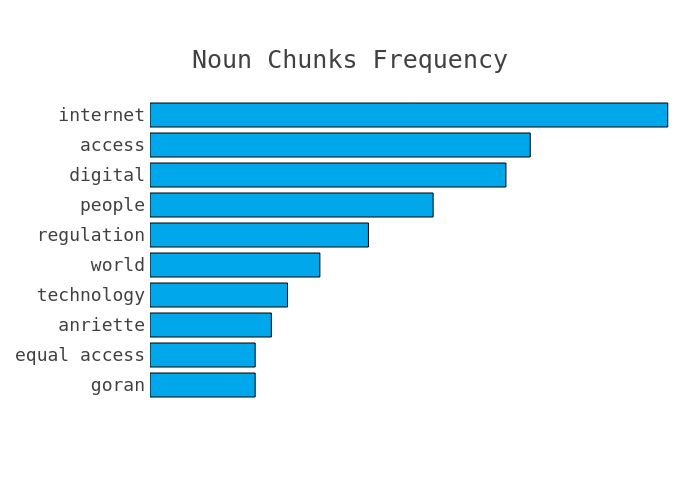Governance models to promote inclusive and diverse business development – what stands in the way?
7 Dec 2021 12:45h - 13:45h
Event report
The discussion focused on how it is possible to create a safe environment online in which businesses can grow, and on how to ensure that no one is left behind in accessing the internet and the digital economy. In particular, panellists considered different governance models that can fairly address the trade-off between regulation and innovation and in common stressed the importance of the multistakeholder approach when regulating the internet.The initial debate focused on the type of regulation that would best foster access to the internet.
A difference exists between simply accessing the internet as a user, that is, as a passive recipient, and meaningfully using it as a tool for creation and innovation. When discussing access, we should take into consideration that equal access is not merely a matter of access to information, but also a matter of access to development and creative potential. As Ms Renata Avila (CEO, Open Knowledge Foundation) pointed out, currently the digital economy is highly centralised with a concentration of technological power in the hands of a few players. That is why it is necessary to invest actively in equal access and not take a free-market approach, since the market is currently distorted and would ultimately disadvantage smaller players. Mr André Xuereb (Ambassador for Digital affairs, Malta) added that regulations could play a significant role as market equalisers for different businesses as well as enabling creativity.
Regarding the need for regulation, all panellists warned against over regulation, since it could have a counterproductive effect and hinder innovation. In particular, Ms Anriette Esterhuysen (Chair of the Internet Governance Forum Multistakeholder Advisory Group) reminded the audience that too often stakeholders look at regulation as a form of control, whereas in fact regulations should aim at enabling access to and participation in the internet. She further explained that we cannot address inclusion without considering exclusion. Inequalities in accessing the internet are inserted in a wider framework of gaps to be bridged (for example, poverty, gender equality) and thus the digital divide cannot be addressed without considering also social and economic inequalities.
Regulations are ultimately inspired by values that govern a society; these include fairness, free and equal access, and other human rights related values. Mr John Frank (Vice President for UN Affairs, Microsoft) asked the audience to reflect on whether the technology we are using is ultimately matching our societal values. Echoing the United Nations Secretary-General’s report, ‘Our Common Agenda’, he considered that much work is yet to be done to allow connection of more people to the internet, in terms of access to the web and in terms of the affordability of devices, the development of digital skills, and the availability of governmental services. In other words, it is essential to have a holistic approach to access that can put users at the centre.
Other speakers also addressed the need for a holistic approach to access to the internet. As Mr Mark Williams (Practice Manager, Digital Development, The World Bank) explained, regulations that enable access to the internet have to look at different complementary aspects, from infrastructure to availability of services, from issues related to the availability of multilingual content and applications to the development of complementary digital systems such as digital IDs and payments. In particular, Mr Göran Marby (CEO and President, Internet Corporation for Assigned Names and Numbers (ICANN)) stressed the importance of differentiating regulating the foundations of the internet (its technical infrastructure) from regulating services and platforms. When touching the technical infrastructure, the interoperable nature of the internet as we know it today is at stake. To this end, he called for more capacity development of regulators and policy makers as the crucial element in avoiding developing regulations that fragment the internet.
During the second part of the event, panellists considered the most useful governance models in addressing the challenges related to access. All of them agreed on the importance of a multistakeholder approach that includes the private sector, governments, and civil society. To this end, venues such as the Internet Governance Forum play a crucial role in bringing together these different actors and in discussing common challenges and responsibilities.
Although the multistakeholder model has been successful, especially in the experience of ICANN, it was also highlighted that we need to be open in assessing what it is working and what it is not in the existing regulations so as to avoid over regulation.
By Marco Lotti
Session in numbers and graphs




Automated summary
Diplo’s AI Lab experiments with automated summaries generated from the IGF sessions. They will complement our traditional reporting. Please let us know if you would like to learn more about this experiment at ai@diplomacy.edu. The automated summary of this session can be found at this link.Related topics
Related event

Internet Governance Forum (IGF) 2021
6 Dec 2021 10:00h - 10 Dec 2021 18:00h
Katowice, Poland and Online
